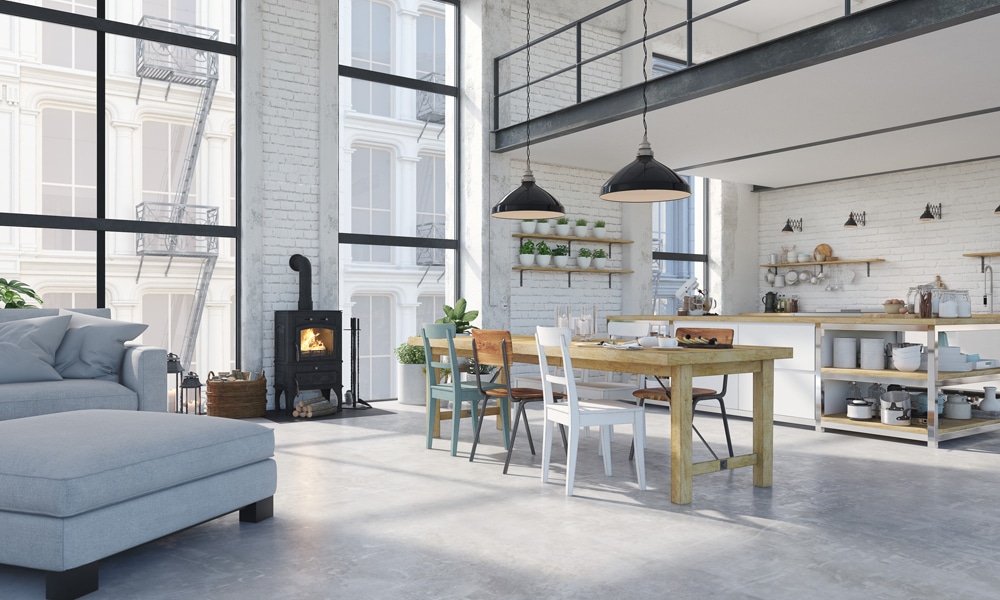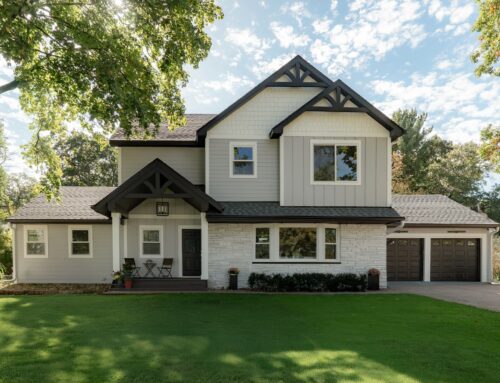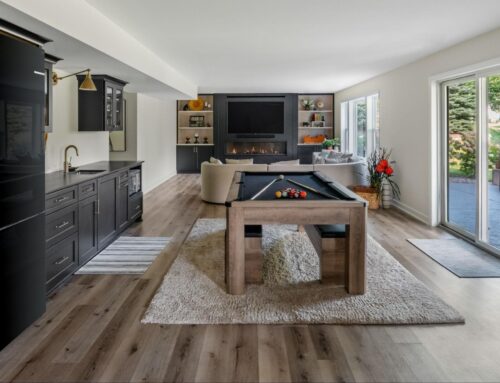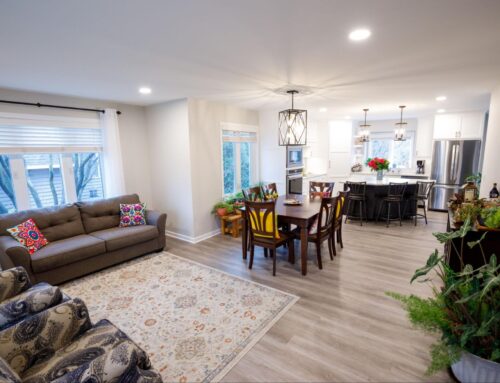Perhaps this is the year you opt to move to a fantastic new condo — or renovate the condo you already have to better fit your needs and personality.
Condo living offers a lot of advantages, which explains why more than 5 million Americans choose condos for their housing. But if you’re planning structural changes you should be aware of the differences between renovating a private home and renovating a condominium.
Here are six key steps to take before embarking on condo upgrades.
Get approval on condo renovations
Your housing board will likely have guidelines and restrictions as to which permits must be secured, how and when workers may enter your building, how much noise will be tolerated, where deliveries can be made, what exactly is considered a structural change and perhaps even which materials can be used. You’ll save yourself future headaches if you plan accordingly and request any variances ahead of time. In the best-case scenario, your builder will be able to handle any HOA negotiations and red tape on your behalf, navigating the different Minnesota building code (the IBC) than applies to multi-family dwellings. “All parties involved will have the best experience if you communicate upfront,” advises Titus Design Manager Scott Rajavuori.
Project how long you’ll be living in your condo
Before investing in changes, you should anticipate whether you’ll be on site a long time or will be selling within a few years. If you’re in for the long haul, you’re more justified in personalizing everything to your own tastes, no matter how different they are from everyone else’s. But if your condo will be hitting the market soon, you’ll probably want to make changes more in keeping with mainstream colors, textures and designs. You may also prefer to spend your money on décor items you can take with you rather than structural improvements that will stay affixed.
Set realistic expectations
Seek knowledgeable, professional advice about how long your project will take and which changes can feasibly be made. Condos often come with more structural limitations than freestanding homes; for example, metal door-frames will be hard to remove and cement ceilings may rule out the drilling required to install certain kinds of lighting. But a pro can advise you on how to conserve space and use colors and materials effectively to still get the effect and/or functionality you want. “We can help with the review board, connect the board with a structural engineer, design a thoughtful floor plan that meets the building rules and codes and provide the right space planning the client is looking for,” says Rajavuori. “Since a condo affects your neighbors, the right builder will keep to a tight schedule so disruption is minimal. The goal is to demonstrate respect and friendliness so the environment is at peace before, during and after the project.”
He notes that a savvy builder can often devise creative ways of meeting building and fire codes while still meeting the client’s wishes. “One example is finessing STC (Sound Transmission Class) relative to your flooring or ceiling finish,” he adds. “Elements such as the type of structural floor you have are very important when considering plumbing and electrical relocations.”
Think about easy-to-implement upgrades
For example, a paint job can be easy to complete but still inexpensive to undo if you don’t like the result. “If you’re looking for a change that doesn’t require construction changes but provides impact to the space, suggestions including painting the kitchen cabinets, creating an art wall with canvas art, adding shelves or wallpapering the powder room,” advises Titus designer Steph Morris. “You might add wainscoting or a paneled accent wall. New light fixtures can go a long way and enhance style … maybe you have a traditional feel but want to jazz it up with contemporary lighting now that you have a transitional space. If you have the storage, changing out pillows and accessories between spring/summer and fall/winter can also bring new life with the change of seasons.”
Consider whether you need temporary living arrangements
Because most condos offer limited living space, your life may be easier if you’re staying off site for the most disruptive projects. Your condo association may even offer extra accommodations.
Be proactive with neighbors
You may ward off conflicts over noise or on-site workers if you let neighbors know the scope of your project and how long it’s likely to last. You may even wish to send thank-you baskets when the project is complete.
When seeking a condo renovation contractor, don’t hesitate to call the specialists at Titus Contracting (952-746-7817) for help. We can work with your condo association to plan the best possible delivery, construction and installation schedules so your project is as smooth and efficient as possible.










